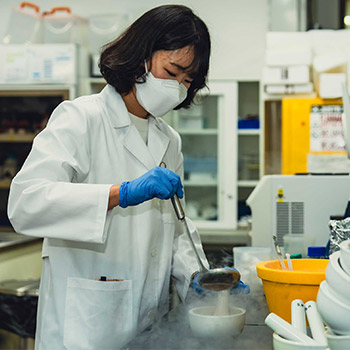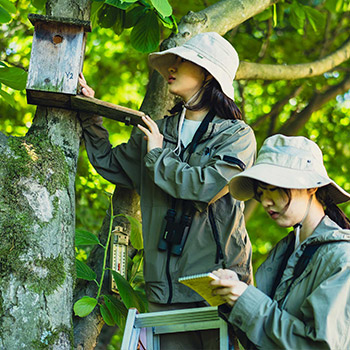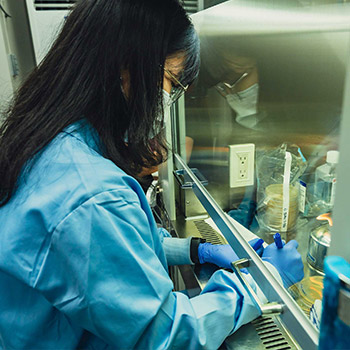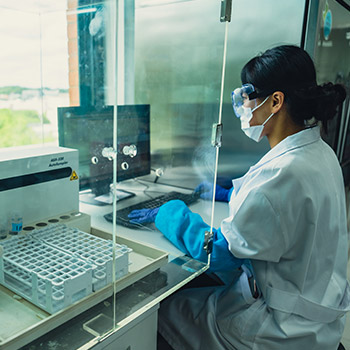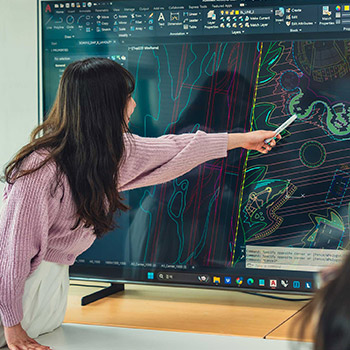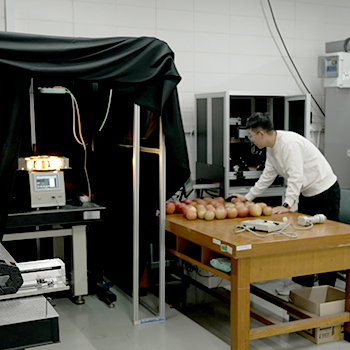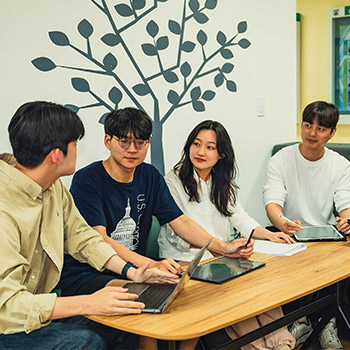Department of Food and Animal Biotechnology
The mission of the Department of Food and Animal Biotechnology involves the research and education of biotechnologies regarding food and animal resources. The major emphasis of food biotechnology is to study advanced technology related to human health and the food industry. Thus, the mission of the food biotechnology program is to educate students to serve in the field throughout the world. The primary objective of the animal biotechnology program is to educate students to reach leadership positions for the 21st century in the field of animal biotechnology.
Our research is focused on the development of bio-resources and bio-reactors as well as technology to uncover complicated diseases in animals and humans. This program trains the students to be food technologists and engineers equipped with chemical and biological fundamentals and engineering methodology for a comprehensive understanding of the physicochemical properties of foods, processing and preservation of food materials, and biotechnological applications.
The animal biotechnology major integrates the newest technologies into traditional animal science. The principal educational objective of the department is to mold successful leaders in the future industries and academics related to food and animal biotechnology.
Our research is focused on the development of bio-resources and bio-reactors as well as technology to uncover complicated diseases in animals and humans. This program trains the students to be food technologists and engineers equipped with chemical and biological fundamentals and engineering methodology for a comprehensive understanding of the physicochemical properties of foods, processing and preservation of food materials, and biotechnological applications.
The animal biotechnology major integrates the newest technologies into traditional animal science. The principal educational objective of the department is to mold successful leaders in the future industries and academics related to food and animal biotechnology.

Programs
Program in Food Science and Biotechnology
The principal objective of the Program in Food Science and Biotechnology is to train students and make them as food technologists and engineers equipped with chemical and biological skills and engineering methodology for a comprehensive understanding of physicochemical properties of foods, processing and preservation of food materials, and biotechnological applications.
The undergraduate program emphasizes both basic principles and key technologies necessary for food and bio-industry. The curriculum is, therefore, designed to provide core courses such as food chemistry, food microbiology, food engineering, food processing, food preservation, food analysis, food biotechnology, and biochemical engineering. Organic chemistry, analytical chemistry, physical chemistry, applied mathematics, biochemistry, and molecular biology are also required to pursue major courses.
The program offers graduate studies leading to the M.S. and Ph.D. degrees. The graduate program is designed to provide students with opportunities for creative endeavors in academic coursework and in fundamental and applied research in the field of food science and technology. This will keep students at the forefront in their professional careers. Graduates have a wide variety of employment opportunities in research and educational institutions, government agencies, and private enterprises.
The undergraduate program emphasizes both basic principles and key technologies necessary for food and bio-industry. The curriculum is, therefore, designed to provide core courses such as food chemistry, food microbiology, food engineering, food processing, food preservation, food analysis, food biotechnology, and biochemical engineering. Organic chemistry, analytical chemistry, physical chemistry, applied mathematics, biochemistry, and molecular biology are also required to pursue major courses.
The program offers graduate studies leading to the M.S. and Ph.D. degrees. The graduate program is designed to provide students with opportunities for creative endeavors in academic coursework and in fundamental and applied research in the field of food science and technology. This will keep students at the forefront in their professional careers. Graduates have a wide variety of employment opportunities in research and educational institutions, government agencies, and private enterprises.

Faculty
| Name | Major | TEL | |
|---|---|---|---|
| Professor Kang Donh Hyun |
Food Safety | +82-2-880-2697 | kang7820@snu.ac.kr |
| Professor Lee Ki won |
Food-Medicine Genomics | +82-2-880-4661 | kiwon@snu.ac.kr |
| Professor Chang Pahn-Shick |
Enzyme Technology | +82-2-880-4852 | pschang@snu.ac.kr |
| Professor Choi Sang Ho |
Molecular Microbiology and Toxicology | +82-2-880-4857 | choish@snu.ac.kr |
| Professor Ha Nam-Chul |
Food Biochemistry | +82-2-880-4853 | hanc210@snu.ac.kr |
| Professor Lee, Do Yup |
metabolomics | +82-2-880-4855 | rome73@snu.ac.kr |
| Professor Lee, Ju-Hoon |
Food Microbiome | +82-2-880-4854 | juhlee@snu.ac.kr |
| Professor Choi Young Jin |
Food Engineering | +82-2-880-4851 | choiyj@snu.ac.kr |

